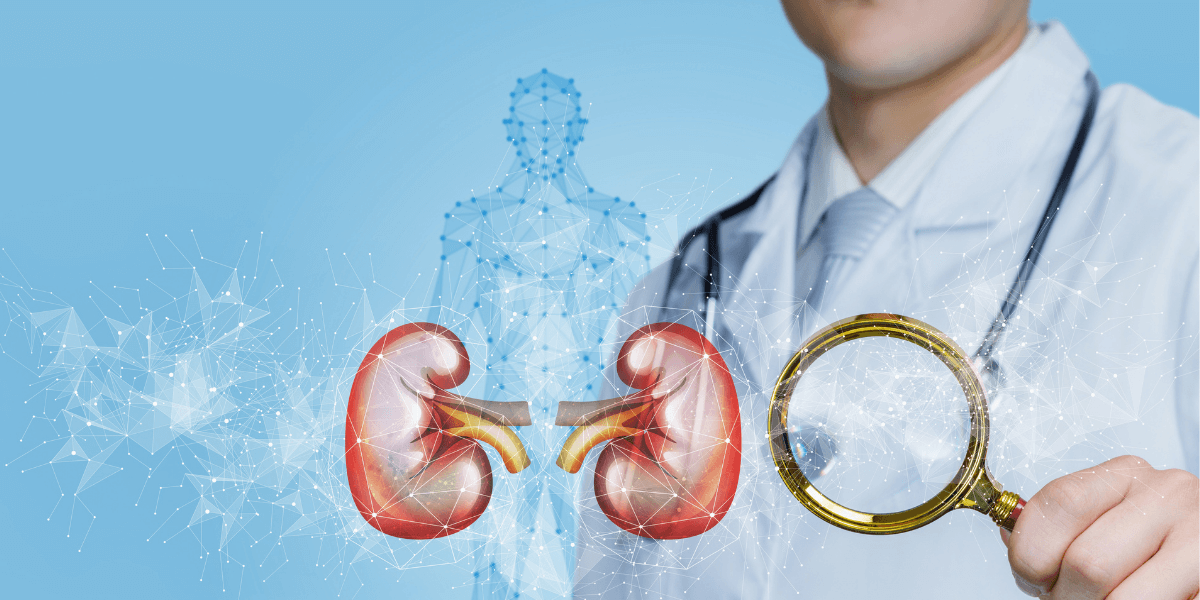


The kidneys are essential organs of your body that are responsible for filtering waste products and other impurities out of the blood. All the toxins eventually end up in the urine, which is then removed from the body. They also generate and respond to hormones that regulate the formation of red blood cells and control blood pressure.
Kidney disease implies that your kidneys are not functioning well or have been damaged over time which can impact your overall health. Approximately 15% or 37 million US adults are affected by kidney disease. Most patients do not exhibit symptoms in the early stages of the disease. However, if your kidney disease progresses, wastes can accumulate in your blood and make you feel ill. Other issues such as excessive blood pressure, anemia, weak bones, poor nutritional status, and nerve damage are possible. In case the kidney disease worsens over time, your kidneys may stop functioning completely.
Let's learn more about kidney disease in this blog.
See Also: When to Know It’s Time to Consult a Nephrologist
Kidney diseases can be classified into five types:
Chronic kidney disease is the most common type of kidney disease. In this condition, kidney function will gradually degenerate to the point that the kidneys are unable to function effectively. It is a lasting condition that doesn’t improve over time, and the person suffering will require dialysis.
The inflammation of the glomeruli is known as glomerulonephritis. Glomeruli are extremely small structures found within the kidneys that filter blood. It is important to identify the underlying cause as there is a wide range of available treatments.
Another common condition of the kidney is kidney stones. Minerals and other substances in the blood crystallize in the kidney forming stone-like masses. Kidney stones often pass through the body through urine and can be exceedingly painful but rarely cause serious complications. Different types of kidney stones can form and should be identified as they may impact how they will be treated.
Polycystic kidney disease is a hereditary illness that causes the kidneys to develop multiple cysts (small sacs of fluid). These cysts can impair kidney function and lead to kidney failure.
Diabetes and high blood pressure are the two most common causes of kidney disease. Other than these two genetic disorders, immune diseases and other infections are related to kidney disease.
Diabetic people are at the highest risk of developing kidney diseases. Other risk factors include:
See Also: Chronic Kidney Disease: How to Take Care of Yourself
Symptoms of kidney disease can go unnoticed until they become severe. Some of the symptoms of kidney disease are:
Your doctor will first evaluate if you fall into one of the high-risk categories. Then they will do some tests to see whether or not your kidneys are working properly. These tests may involve the following:
Images of your kidneys and urinary tracts can be produced with the help of ultrasounds and CT scans. They can help the doctor see if your kidneys are too small or large and whether any tumors or structural problems are present in the kidneys.
With this test, a nephrologist will measure how well your kidney function is and determine the stages of kidney disease.
Your doctor may need to get a small sample from your kidney during a kidney biopsy. With the assistance of the tissue samples, your doctor can determine the type of kidney disease and the extent of the damage.
Controlling the underlying causes of kidney disease is mainly focused on during the treatment. They may use one of the following methods to treat your kidney disease:
Are you suffering from kidney disease and are looking for a transplant near you? If so, contact Kidney Physicians of Indiana today to schedule an appointment. We are one of the best kidney clinics with a team of board-certified nephrologists committed to taking full care of you and your loved ones.